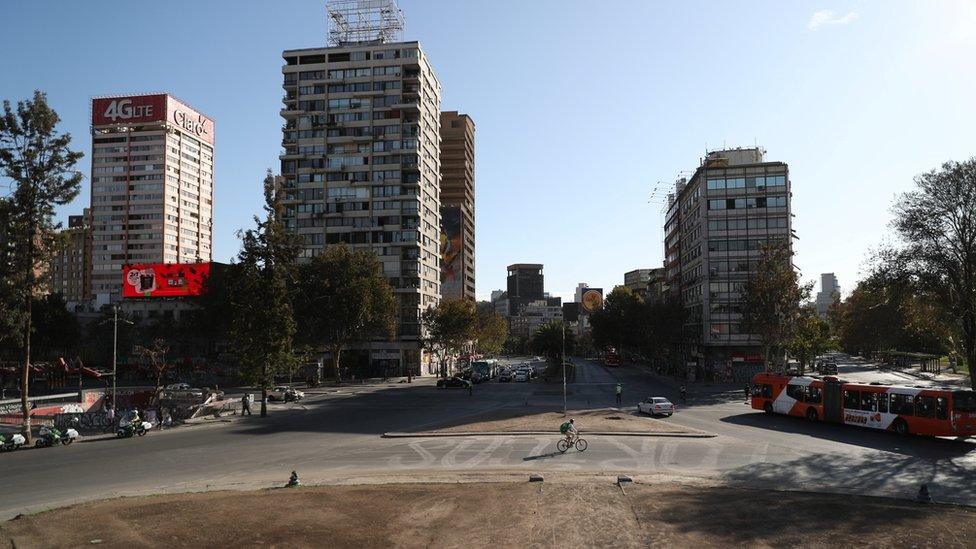Chile lockdown: Anti-government protest broken up by police
- Published

The square where the protest was held had been empty for a month since Santiago's lockdown was first enforced
Chilean police broke up anti-government protests in Santiago and arrested 14 people on Monday night local time, citing social distancing laws.
Protests first erupted in Chile in October and were held almost daily, but largely subsided as coronavirus spread.
But anger over low wages, high costs of living and inequality which triggered the protests has not diminished.
The police said that they made the arrests because "mass congregations are prohibited".
Health officials have banned gatherings of more than 50 people, restaurants and bars are closed and an evening curfew is in place.
Allow Twitter content?
This article contains content provided by Twitter. We ask for your permission before anything is loaded, as they may be using cookies and other technologies. You may want to read and before accepting. To view this content choose âaccept and continueâ.
It is not clear exactly how many people attended the protest at Plaza Italia but photos posted on social media appeared to show protesters keeping their distance from each other.
During the wave of protests which swept the country last year, President SebastiÃĄn PiÃąera's approval ratings fell to historic lows and he faced repeated calls to resign.
Earlier this month, he sparked criticism by posing for photos in an empty Plaza Italia while the city was under a strict lockdown.
What sparked the protests?
The protests were originally triggered by a rise in the metro fare in Santiago, but soon became a much wider movement denouncing inequality in Chile, the high costs of healthcare and poor funding of education.
Excessive use of force by police, with hundreds of protesters blinded by rubber bullets, further stoked Chileans' anger.
Protesters also took issue with Chile's constitution, which dates back to the years of military rule under Gen Augusto Pinochet.
At the height of the protests in October, Chile pulled out of hosting two major international summits, the COP25 climate summit and the Apec trade forum, for fear of violence.
- Published7 April 2020
- Published1 March 2020
- Published24 February 2020